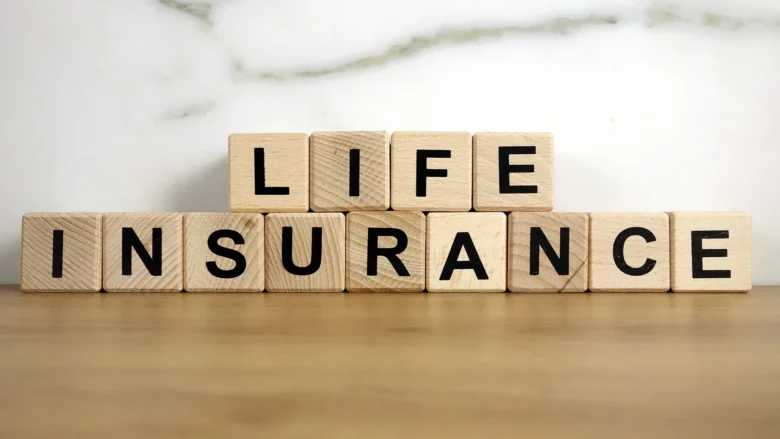Buying life insurance is an important part of financial planning because it gives your family peace of mind and security. But it’s important to make sure you’re not paying too much for this important security. Paying too much for life insurance can hurt your finances without providing you with additional benefits. If you think your life insurance premiums are too high, here are five signs to look out for.
1. You Have More Coverage Than You Need:
It’s common for people to pay too much for life insurance because their policy covers more than they need. It’s important to consider what your life insurance policy will be used for and how it fits into your overall budget. For example, if the main purpose of your policy is to ensure that your children are taken care of financially until they can live independently, you may not need a jumbo policy once they move out. If you find that your policy’s death benefit far exceeds your debts, future income needs, and other financial responsibilities, you may want to recheck your coverage and possibly downsize to a better policy.
2. No Need to Buy Expensive Add-ons:
Riders are additional benefits you can get through your insurance policy, but you don’t have to have them. For example, if you are disabled and cannot work, you may not have to pay premiums. Some rides are useful, but cost money. If your policy includes extra features that you don’t need right now, you may be paying too much. Consider the strengths and weaknesses of each knight. If you get rid of riders that are no longer useful or cover risks that are not relevant to your situation, your premiums can drop significantly.
3. Expensive Premiums Due to Poor Health Choices at the Beginning of the Policy:
When you apply for life insurance, your health will affect the amount they pay each month. If you get sick, your premiums may be higher, but if your health improves after you take out the policy, you may pay too much. You may be able to get a lower price if you take steps such as quitting smoking, losing weight, or lowering your cholesterol and blood pressure. If this happens, you should call your insurance company and ask if these changes can be made to your rates. If not, you may need to find a new policy.
4. You Didn’t See Any Other Prices:
If you bought life insurance a few years ago without checking other companies’ rates and haven’t made any purchases since, you may be missing out on a better deal. Life insurance rates are constantly changing due to new actuarial data and market changes. If you receive quotes from multiple insurance companies, some of them may offer the same coverage for less. To really find out if you can save money by switching providers, make sure you compare identical coverage.
5. The Cash Value Portion of Your Policy is Very High:
If you have whole life insurance or another type of permanent life insurance, a portion of your payments will go toward building cash value. Some people may benefit from it as part of a financial plan, but for others, it is a cost they don’t have to pay. If you don’t need the cash value portion, you may be paying too much. For example, if you simply want to ensure that your children are cared for after your death rather than building cash value, you may be paying too much. You may want to switch to term life insurance, which typically has much cheaper premiums and no cash value.
Conclusion:
If you see these signs, you can figure out if you’re paying too much for your life insurance and make changes to your policy. You should keep an eye on your life insurance needs and the specifics of your policy to make sure they are still cost-effective and in line with your financial goals. Not only does this improve your coverage, but it also helps you better handle your money. If you think you’re paying too much, you might want to talk to a financial advisor or insurance specialist. They can give you help that is specific to your situation. You can make sure you’re not paying more for your life insurance than you need to by being cautious and well-informed. This will protect your finances while still giving your loved ones enough protection.
FAQs:
1. What should I do if I think I have too much life insurance?
To find out if you have too much coverage, you should look at your current debts, your current financial responsibilities, and the future needs of your dependents. As a general rule, you should have coverage for 10 to 15 times your yearly income. But you should also think about your own finances, like how much you still owe on your home, how much your kids’ school costs, and any other costs you know you’ll have. You may be overinsured if your coverage goes way beyond these needs for no good reason.
2. What are life insurance riders, and do I need them?
Riders are extra benefits that can be added to a basic life insurance policy to give you extra defenses or features. For example, if you become disabled, your premiums may not be due, and your death benefit may be paid out sooner. Whether you need any riders or not depends on your personal situation and your financial goals. Compare the price of each rider to how often you’ll need it and decide if the extra cost is worth the benefit it offers.
3. If my health gets better, can I drop my life insurance rates?
Yes, you may be able to get lower rates if your health has gotten a lot better since you bought your life insurance. This is especially true if you have quit smoking, lost weight, or taken care of a health problem like diabetes or high blood pressure that you didn’t have control over before. To take advantage of your better health, you can ask your present insurance company to reevaluate your policy or look for a new one.
4. Is it a good idea to look around for life insurance?
Of course. Life insurance rates can be very different from one company to the next. You can get the best deal on the coverage you need by getting quotes from several insurance companies. You should look over your life insurance choices every couple of years or after big changes in your life to make sure you’re not paying too much.
5. How do I know if I want to switch from a whole life insurance plan to a term life insurance plan?
It may make sense to switch from a whole life policy to a term life policy if you want lower rates and your main goal is to protect your family financially while you’re working, rather than building cash value. Think about your financial goals and weigh the costs and benefits of both types of plans. Talking to a financial advisor can also help you make a choice that fits with your general plan for your money.



